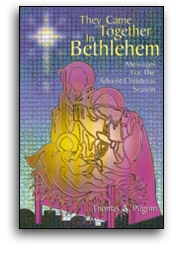SermonStudio
The Three Kings -- And The King Of Kings
Worship
They Came Together In Bethlehem
Messages for the Advent/Christmas Season
First Sunday After Christmas
Isaiah 9:7; Matthew 2:1-12
They Came Together In Bethlehem:
The Three Kings -- And The King Of Kings
A wealthy couple went on a trip to Hawaii. One afternoon the wife went down to the beach. After a while her husband walked down to the beach. He saw a group of people there trying to help someone. He realized it was his wife. He ran up to them and said, "What are you doing?" They replied, "We're giving her artificial respiration." He said, "Artificial nothing. Give her the real thing. We can afford it!"1
Isaiah 9:7; Matthew 2:1-12
They Came Together In Bethlehem:
The Three Kings -- And The King Of Kings
A wealthy couple went on a trip to Hawaii. One afternoon the wife went down to the beach. After a while her husband walked down to the beach. He saw a group of people there trying to help someone. He realized it was his wife. He ran up to them and said, "What are you doing?" They replied, "We're giving her artificial respiration." He said, "Artificial nothing. Give her the real thing. We can afford it!"1


